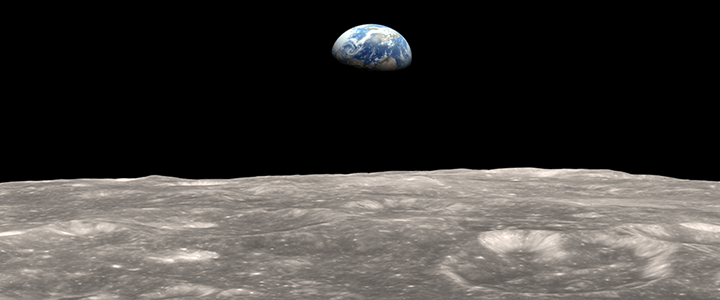Everyone has had their laugh at President Donald Trump’s expense, so now we can go about the serious work of discussing what his proposed “Space Force” would look like, assuming congress ever authorizes one. The president said Monday he has ordered the Pentagon to begin work to create a sixth branch of the military “separate but equal” to the Air Force. While those prone to mock the president at every turn are doing just that, and others are just having a good-natured laugh, the proposal didn’t originate with Trump, and isn’t completely without merit.
Air Force Lt. Col. Cynthia McKinley was the first to develop the concept, in 2000. She proposed an organization, modeled on the Coast Guard, that could “free the Air Force to pursue its aerospace power vision and allow this nation to use space assets most effectively and exploit space successfully in the coming decades.” While military space has taken a back seat to counterinsurgency and counterterrorism operations since 2001, the idea of a dedicated military service with responsibility for space has not gone away.
The House version of last year’s National Defense Authorization Act included a provision to have the Air Force create a “numbered air force” that would assume responsibility for space operations and be subordinate to the existing U.S. Space Command. The proposal, however, kept the organization within the Air Force.
There is no doubt that in a future war against a “peer or near-peer” adversary like Russia or China, space will be part of the fight, even if it isn’t with mobile space infantry like Stormship Troopers or the Buck Rogers novels. The National Security and National Defense Strategies, and the Army’s Multi-Domain Operations concept (yes, it was called “Multi-Domain Battle” until a few weeks ago, and yes, even though he retired, I will still call these documents the McMaster Doctrine) all recognize that space plays a critical role in the future of warfare.
GPS helps you on your road trip, but that’s not its purpose
The importance of position, navigation, and timing is just one example of the way space is critical to military operations. When there’s a location chip in every smartphone and a navigation system in every new car, it’s sometimes hard to remember that the Global Positioning System hasn’t been around all that long.
The first GPS satellite was launched in 1978, and the system didn’t become fully operational until 1995. I first used a GPS device during my armor battalion’s rotation at the National Training Center in September 1991. Our operations orders at the time included information on how many GPS satellites would be visible at any given time (you need three for location and altitude), and which times the system would be unavailable altogether.
GPS has since become invaluable. While soldiers still need to know how to read a map and navigate both mounted and dismounted without a GPS, having the devices allows them to focus on more critical tasks. And beyond simple navigation, many “smart munitions” rely on GPS to find their targets, and the technology that allows U.S. service members to have securely encrypted radio conversations relies on the GPS signal to keep each radio’s cryptographic keys synchronized.
This is why, despite the innumerable commercial uses for GPS, the satellites are still owned by the military, and the Air Force’s 2nd Space Operations Squadron runs the GPS Master Control Station at Schriever Air Force Base, Colo. Operation of the GPS system, and the GPS Program Office’s development and acquisition of future capabilities, would presumably be two of the functions taken from the Air Force and placed in the Space Force.
A friend and her daughter once came to visit me at a marina in Washington, D.C. The Buzzard’s Point neighborhood, close to Fort McNair and site of the old Coast Guard headquarters, has lots of one-way streets, so I gave them detailed directions. When they were inevitably late, the Millennial-aged driver said, “I never listen to directions, I just go where Siri tells me to go.” Except not only does Siri not always have the best information, in a future war, Siri likely won’t be able to talk to the GPS satellites, either because they were shot down, as the U.S. demonstrated is possible in 2008, or the enemy is jamming or spoofing the signal, like the Russians did on the Black Sea a year ago.
When that happens, you might wish you didn’t mock the idea of a Space Force quite so loudly in 2018.




